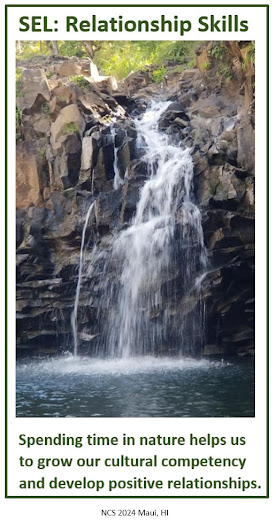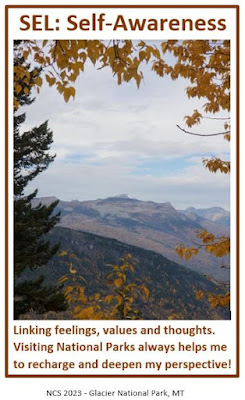Engaging in Self-Awareness practices helps us understand our reactions to daily situations, and make an active choice of how we want to deal with them. Remembering that we have choices is a crucially important part of our agency - and when our own agency is strong, we can better support our students' agency, too. Learner agency is the students' voice and choice in their own learning.
Finding time for practicing self-awareness can be hard. My solution is to go for a walk in the nature because it helps me to focus.
How are you supporting your wellbeing? What are your practices for learning more about yourself?
CASEL has a great resource for Transformative SEL, where you can find more about supporting students identity and agency. And HOPE is a helpful resource for embedding positive experiences to our everyday teaching practices.






